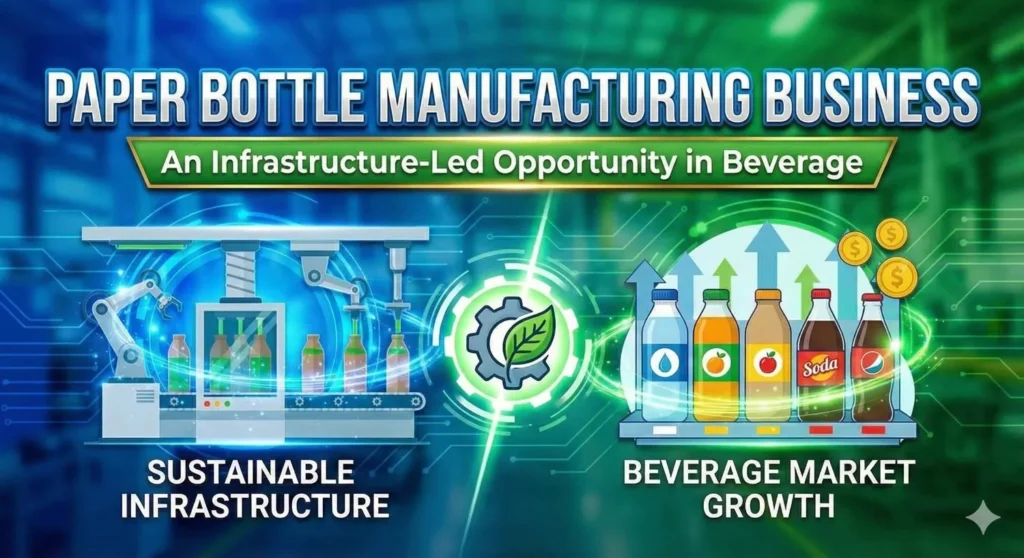Contents
- 1 Introduction to Plastics & Resin Manufacturing
- 2 Understanding the Scope of Plastics & Resin Industry
- 3 Step-by-Step Guide to Launching a Plastics & Resin Manufacturing Business
- 3.1 1. Conduct Comprehensive Market Research
- 3.2 2. Choose the Right Product Niche
- 3.3 3. Legal Setup, Certifications, and Licensing
- 3.4 4. Factory Location and Infrastructure Planning
- 3.5 5. Machinery and Equipment Setup
- 3.6 6. Raw Materials and Supplier Management
- 3.7 7. Hiring and Training Skilled Workforce
- 3.8 8. Compliance with Environmental and Safety Standards
- 3.9 9. Develop a Strong Sales and Distribution Network
- 3.10 10. Branding, Digital Marketing, and Business Development
- 4 Financial Planning and ROI Expectations
- 5 Challenges and Industry Risks
- 6 Future Trends Shaping Plastics & Resin Manufacturing
- 7 Why Invest in Plastics & Resin Manufacturing Today?
Introduction to Plastics & Resin Manufacturing
The plastics & resin manufacturing industry is one of the most lucrative and expanding sectors in the global economy today. Driven by rapid industrialization, urban development, and the ongoing demand for innovative materials, starting a plastics & resin manufacturing business offers an exceptional opportunity for entrepreneurs and investors to establish a strong and profitable enterprise. Plastics are used in virtually every industry—from automotive, construction, and electronics to packaging, textiles, and healthcare. Similarly, resins serve as critical components in adhesives, coatings, and composite materials, helping improve durability, flexibility, and performance.
The beauty of this industry lies in its diversity and adaptability. Whether producing basic polyethylene products or specialty epoxy resins for aerospace applications, this field allows for deep customization, scalability, and consistent demand. With proper planning, technological integration, and a commitment to sustainability, a plastics & resin manufacturing business can thrive in both domestic and international markets.
Understanding the Scope of Plastics & Resin Industry
The plastics & resin industry encompasses a vast array of products and services. Plastics can be broadly classified into two categories:
- Thermoplastics, such as polyethylene (PE), polypropylene (PP), polyvinyl chloride (PVC), and polystyrene (PS), which can be melted and reshaped multiple times.
- Thermosetting plastics, like epoxy, phenolic, and melamine resins, which harden permanently after being molded once.
Resins, on the other hand, are crucial for creating adhesives, paints, varnishes, and plastic composites. These materials are the backbone of several end-use industries including automotive, aerospace, consumer goods, medical devices, and more.
The global plastics market is valued at over USD 600 billion and is projected to surpass USD 750 billion in the next five years. With innovations in biodegradable and recyclable plastics, the industry is pivoting toward greener solutions while maintaining a steady growth trajectory.
Step-by-Step Guide to Launching a Plastics & Resin Manufacturing Business
1. Conduct Comprehensive Market Research
To begin with, perform an in-depth market analysis. Key factors to study include:
- Global and regional trends
- Product demand and supply gaps
- Target customer segments
- Existing competitors and their market share
- Raw material sourcing opportunities
- Government regulations and subsidies
- Environmental impact and sustainability demands
Studying these parameters helps in identifying profitable niches such as biodegradable plastics, medical-grade polymers, or industrial resins.
2. Choose the Right Product Niche
Identifying the right product segment is vital. You can focus on:
- Commodity plastics: such as HDPE, LDPE, PP, and PVC, used in packaging, construction, and consumer goods.
- Specialty resins: including epoxy, alkyd, acrylics, and unsaturated polyesters for high-performance applications.
- Eco-friendly bioplastics: made from renewable resources such as corn starch or sugarcane.
Define whether you want to serve as an OEM (Original Equipment Manufacturer), supply raw resins to processors, or offer custom-molded plastic products for specific industries.
3. Legal Setup, Certifications, and Licensing
Set up a legal entity such as:
- Proprietorship
- Partnership firm
- Limited Liability Company (LLC)
- Private Limited Company
You must obtain:
- Business registration
- Pollution Control Board (PCB) clearance
- Factory license
- Fire and safety certifications
- GST registration
- ISO certifications (ISO 9001, ISO 14001, etc.)
In some regions, especially for export, certifications like CE and REACH may be required.
4. Factory Location and Infrastructure Planning
Selecting the ideal location is critical. An industrial zone with proximity to raw material suppliers and distribution hubs reduces logistical costs and improves efficiency.
Key infrastructure elements include:
- Manufacturing unit with proper layout and machinery
- Storage space for raw materials and finished goods
- Office for administrative functions
- Waste management and effluent treatment facilities
- Backup power supply and fire protection systems
Ensure the factory meets all zoning and environmental guidelines to avoid legal complications.
5. Machinery and Equipment Setup
Investment in high-quality machinery ensures smooth production and long-term durability. Common equipment includes:
- Extrusion machines
- Injection molding machines
- Blow molding and thermoforming equipment
- Polymerization reactors
- Mixing and blending units
- Quality control laboratories
- Granulators and shredders
- Packing and sealing machines
Advanced automation and Industry 4.0 technologies like IoT, AI, and robotics are increasingly being adopted for real-time monitoring, predictive maintenance, and productivity optimization.
6. Raw Materials and Supplier Management
Secure a consistent supply chain for essential raw materials:
- Petrochemical derivatives (naphtha, ethylene, propylene)
- Bio-based feedstocks (corn starch, cellulose, lactic acid)
- Additives (stabilizers, plasticizers, flame retardants, colorants)
- Fillers and reinforcements (glass fiber, calcium carbonate)
Negotiate bulk procurement contracts to manage price volatility and ensure timely delivery. Building strong supplier relationships is crucial for a plastics & resin manufacturing business.
7. Hiring and Training Skilled Workforce
Recruit skilled professionals, including:
- Chemical engineers and process technicians
- Production managers
- Maintenance engineers
- Safety and compliance officers
- Machine operators and packaging staff
Provide regular training programs focused on:
- Equipment handling and safety
- Quality control and assurance
- Regulatory compliance
- Sustainable practices
A competent team ensures smooth operations, fewer breakdowns, and higher product quality.
8. Compliance with Environmental and Safety Standards
The plastics & resin industry faces intense scrutiny for environmental and health impacts. Ensure compliance with:
- Local environmental laws and pollution control norms
- International standards such as RoHS, REACH, and ISO 14000
- Occupational safety regulations under OSHA or equivalent
Set up effluent treatment plants (ETPs), air scrubbers, and recycling systems to minimize environmental damage. Promote responsible handling of hazardous materials and maintain transparent records.
9. Develop a Strong Sales and Distribution Network
Explore multiple sales channels including:
- Direct B2B contracts with manufacturers
- Industrial distributors and wholesalers
- Online platforms and marketplaces
- Export to high-demand countries
Participate in trade shows, expos, and industry forums to build visibility. Invest in a CRM system for lead management, customer engagement, and after-sales service.
10. Branding, Digital Marketing, and Business Development
In today’s digital age, visibility equals viability. Establish a strong brand identity through:
- A professional website with product catalogs, datasheets, and certifications
- SEO-optimized content targeting keywords like plastics & resin manufacturing business
- LinkedIn and social media campaigns
- Google Ads and remarketing strategies
- E-newsletters, whitepapers, and product demos
Focus on customer education through blogs, video content, and case studies to showcase expertise and innovation.
Financial Planning and ROI Expectations
Initial investment for setting up a plastics & resin manufacturing plant ranges from ?2 crore to ?15 crore depending on capacity, scale, and product line.
Key cost heads include:
- Land and building
- Machinery and automation
- Licenses and certifications
- Raw material inventory
- Payroll and HR
- Marketing and branding
Revenue is generated through volume sales, high-margin specialty products, and long-term industrial contracts. A well-run operation can break even within 18–24 months and yield returns exceeding 30% annually after scaling.
Challenges and Industry Risks
Major challenges include:
- Price fluctuations of crude oil-based raw materials
- Increasing regulatory pressure for sustainability
- Capital-intensive nature of plant setup
- Managing hazardous by-products and emissions
- Global competition from cheaper imports
Risk mitigation strategies:
- Diversify raw material sources
- Invest in R&D for biodegradable plastics
- Automate to reduce labor dependency
- Build strong client relationships for recurring orders
- Continuously monitor regulatory landscape
Future Trends Shaping Plastics & Resin Manufacturing
We must stay prepared for the future with insights into the following key trends:
- Circular economy: Increasing demand for recyclable and reusable plastics.
- Green chemistry: Innovations in bio-based and non-toxic alternatives.
- Smart materials: Self-healing, conductive, and shape-memory plastics.
- 3D printing: Customized resin-based printing materials for prototyping.
- AI integration: Predictive analytics for quality control and supply chain optimization.
Aligning our plastics & resin manufacturing business with these trends ensures relevance, compliance, and sustained growth.
Why Invest in Plastics & Resin Manufacturing Today?
- High industrial demand and diverse applications
- Strong export potential and global market access
- Availability of advanced manufacturing technology
- Government support through subsidies and incentives
- Long product life cycles and repeat purchase behavior
- Ability to innovate and differentiate in niche segments
Starting a plastics & resin manufacturing business today is not just about building a factory—it’s about creating a sustainable, scalable enterprise that contributes to innovation, economic growth, and industrial development.
Conclusion
The time to venture into the plastics & resin industry is now. With strategic planning, strong execution, and commitment to quality and sustainability, your business can become a leading force in this dynamic and growing sector. The need for innovative and high-performance polymers is only expected to rise, making this the perfect time to establish your presence.
Visit the page Select and Choose the Right Business Startup for You for sorting out the questions arising in your mind before starting any business and know which start-up you can plan.
We, at NPCS, endeavor to make business selection a simple and convenient step for any entrepreneur/startup. Our expert team, by capitalizing on its dexterity and decade’s long experience in the field, has created a list of profitable ventures for entrepreneurs who wish to diversify or venture. The list so mentioned is updated regularly to give you a regular dose of new emerging opportunities.






